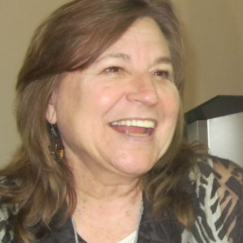The opportunistic teacher who embraces the leisure interests of his pupils in the hope of leading them to higher things is as frequently unsympathetic to the really valuable qualities of popular culture as his colleague who remains resolutely hostile. A true training in discrimination is concerned with pleasure.

Tessa Jolls

Len
So many fine people have
So many fine people have contributed to the media literacy field! We are fortunate to have direct access to many of the founders, but when I decided to contribute to this gallery, there is only one person whom I think stands above all others in seeing and describing what distinguishes media literacy: Len Masterman.
In his own words, during a Voices of Media Literacy Interview in 2010:
"...you can teach about the media most effectively, not through a content-centered approach, but through the application of a conceptual framework which can help pupils to make sense of
any media text. And that applies every bit as much to the new digitized technologies as it did to the old mass media...The acid test of whether a media course has been successful resides in students’ ability to respond critically to media texts they will encounter in the future. Media education is nothing if it is not an education for life..."
Len's profound insights into how media operate as a global system -- and how we can systematically understand media -- were groundbreaking, and provided the intellectual construct needed to provide a transferrable knowledge base for the discipline. As Len himself said, "Once you accept as a fundamental premise that you are dealing not so much with reflections of reality but with a symbolic system, then a whole set of satellite questions immediately present themselves. " Len devoted his career to exploring the media world. His Eighteen Basic Principals for media education stand as relevant today as when he wrote them in 1989 ( http://www.medialit.org/reading-room/media-awareness-education-eighteen-...). Len Masterman is a man for all ages.